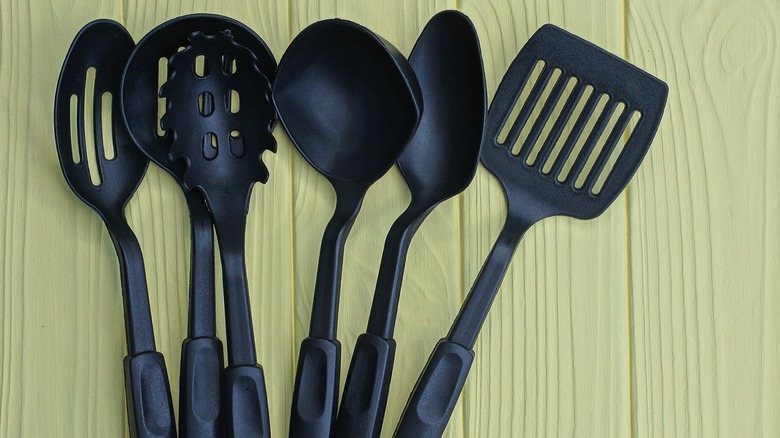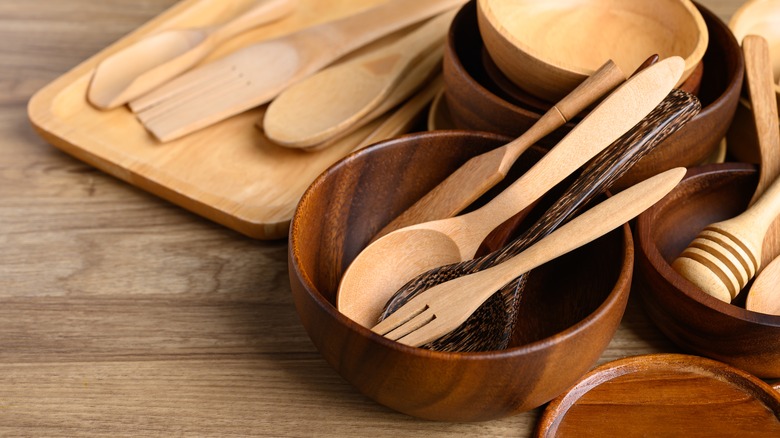Why Your Black Plastic Cooking Utensils Might Be Toxic
We all know that food safety is paramount when creating culinary delights at home. Things like carefully avoiding cross-contamination and mistakes that can ruin a summer BBQ are always in the back of our minds as we cook. Yet there may be dangers in the kitchen we were previously unaware of — and they are hiding in plain sight. If you have black plastic cooking utensils hanging around, you may want to consider replacing them after this latest revelation.
Items like electronics and other housing cases commonly found in households nationwide are often recycled to reduce waste. These plastics frequently contain fire-retardant chemicals. Those synthetics have been banned once they were found to potentially correlate with hormone disruptions, reproductive and developmental issues, and cancer. The problem is that when these products are recycled, those chemicals may remain even when new use of them has been banned. Some of that questionable material has been found in everyday products we use in the kitchen, like black plastic cooking utensils.
Specifically, the chemicals in question are known as brominated flame retardants (BFRs). As published in an October 2024 issue of Chemosphere, researchers tested various recycled products — from cooking utensils to children's toys — and found that many contained BFRs, some at alarming levels. Two food-related products with some of the highest levels of BFRs included a to-go sushi container and a black plastic spatula. To many, this now warrants a reconsideration of what many of us use as kitchen assistants.
Alternatives to plastic cooking utensils
BFRs were banned in the U.S. because, even when they are merely housing products like electronics, they can still enter our bodies through airborne dust. Direct exposure via the mouth can allow more to infiltrate our system. There is really no such thing as microwave-safe plastic, but were you to forgo that prevailing wisdom and microwave or cook with an item containing BFRs, even more of those chemicals could leech into your food and be introduced into your body. This means that a black plastic spatula or ladle you might be using while making delicious fare could be a problem.
Because most recycled products don't generally list materials, it can be difficult — if not impossible — to determine whether or not your plastic cooking utensils contain something dangerous. The best way to ensure cooking utensils are free of BFRs and other problematic synthetics is to switch to alternative materials.
If cared for properly, wooden utensils can be an exceptional option. Cleaning wooden spoons in boiling water is a bad idea because it can deteriorate the structure, but a review in Antibiotics indicates that some wood is naturally anti-microbial (depending on the tree species). They're also not commonly associated with BFRs. More expensive stainless steel cooking utensils should also be relatively free of BFRs. They are also typically rugged, meaning they should last for quite some time. Depending on how many utensils you consider replacing, the cost might add up, but you may prefer to do so anyway for peace of mind.

